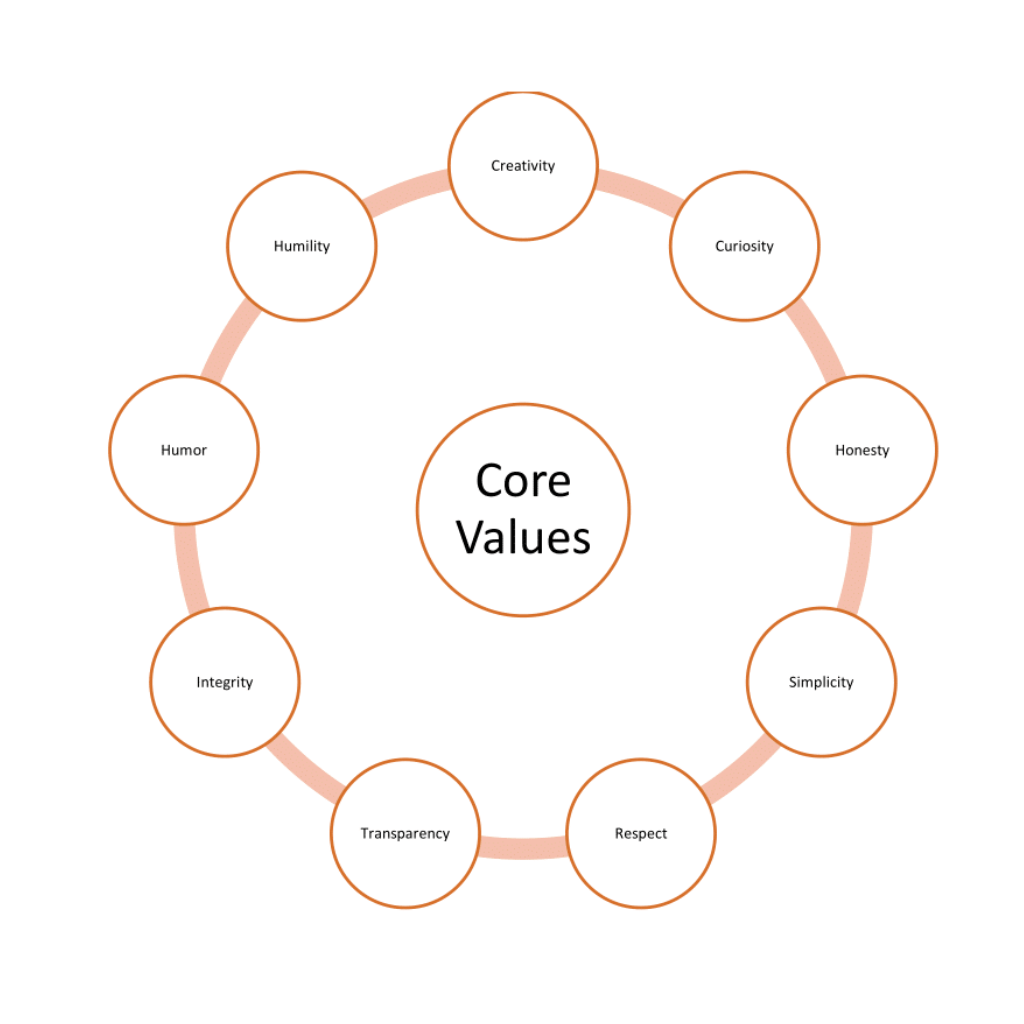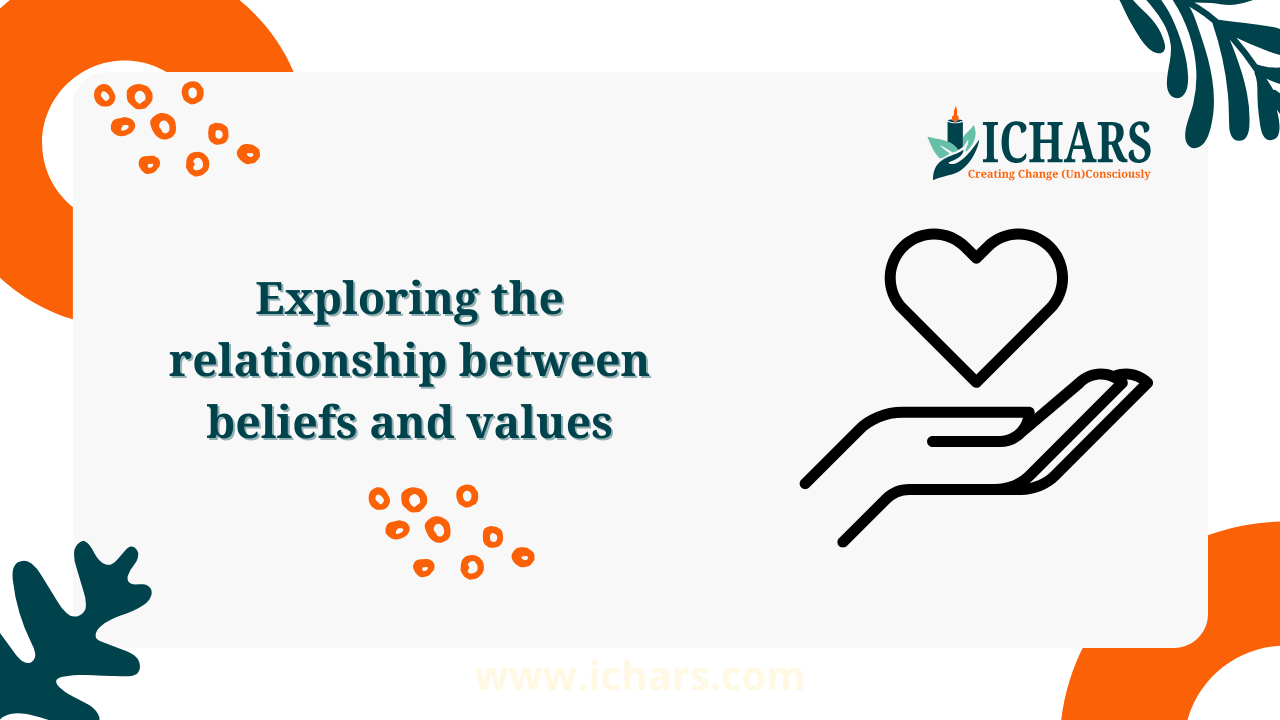Working with a client’s beliefs and values is a challenging yet insightfully rewarding process. As a therapist, it helps encompass varied perspectives, understand multiple cause and effect situations that take place in the clients life.
It also enables learning and applications of new skills, and creating fulfilling relationships by reaching the desired outcome. However,inability to seamlessly work with varying beliefs and values can also result in misunderstandings, conflicts, and ethical dilemmas. To work around the intricacies of varying beliefs and values, let us first understand them better to effectively work with clients.
Beliefs

The classic definition of belief is an idea that one accepts as being true or real without the need for any kind of a proof or a statement. This serves as a testimony to the specific belief that stays strong in the absence of any validation.
The word Belief/ Believe brings to mind that very popular song of the 90’s, which says “I believe I can fly. I believe I can touch the sky ….”
This honestly makes one think about the power of a belief system. As it appears, even from the lyrics of this song, a belief is something like an assumption, a conviction, innately feels like the truth irrespective of any kind of evidence or the need for one. Beliefs are often so powerful that they deeply affect Thoughts, Emotions and Actions.
This could manifest both in ways that could be productive or even counterproductive depending on the nature of the belief being harboured.
Kinds of Beliefs & their Effects:
Belief that stems from a song like “I believe I can fly, I believe I can touch the sky ….” spells a great deal of motivation and encouragement enabling one to tide over all kinds of hurdles and obstacles that may come this way. On the contrary, a belief system that says “The world is full of materialistic people” speaks of how the individual views the ecosystem around.
Such a belief comes from an experience that the individual may have gone through by themself or been witness to. So it will be fair to note that all kinds of beliefs are born from a specific trigger that features in the personal or immediate environment. Ironically, though the lyrics of the celebrated song spell motivation, the truth behind it was the personal fear of planes that prompted the songwriter -singer R. Kelly to pen lyrics that personified the ultimate triumph of his belief over his fears.
Beliefs therefore affect our mental and emotional construct and are like a compass that point in the direction of our assumed, subjective and contextual convictions and truths. These are a by-product of our experiences and conclusions as conceived from our bitter sweet truths of our life.
Values

Values can be identified as the principles on which our life mechanism operates. Values are more moralistic in nature and tend to box things into ‘good’ or ‘ bad’ These represent the standardisation and norms of living as laid down by society, culture, tradition and the like. They are systemic in their operations and consequential in their application.
Though values are also formed as a result of our experiences and backgrounds, values are more like individual benchmarks of a personality. Values are attributes of a person and form a part of the core of the individual.
For Example: Kindness, Humility, Compassion, Integrity, Honesty, etc are all values that one can possess. Not all individuals have the same value set and each one has a value set that is carved as a result of their priorities and about how they want to operate as a human being.
Relationship between Beliefs and Values
Beliefs are the engine that guides the value set of an individual. The more consistent the belief, the stronger the value it creates.
For example: If an individual believes ‘Honesty is the best policy’ and consistently believes in it, the value set that the individual ingrains within is that of Integrity, This value set of Integrity then characterises the personality of the individual and becomes an integral part of them.
On the contrary, if the individual harbours a belief like,” Take from the world by hook or crook, because the world doesn’t understand your needs and you should snatch it for yourself”.
Such a belief system initiates a value system that creates a justification for the fulfilment of the person’s needs and assumes that the environment around is insensitive to their requirements. This in turn is creation of something that we can a ‘Negative Value Set’.
Similarities & Differences between Beliefs and Values.
- shape individual outlook and personality.
- Influenced by external environments.
- Impart a sense of personal identity and a mutual fraternity/ community.
- Are changeable over time periods.
- Are markers of individual well-being.
Beliefs Vs Values
| Beliefs | S.No. | Values |
| Beliefs originate from tales & assumptions. Beliefs stem from our life experiences, spiritual learnings, and culture. | 1 | Values originate from analysis and judgements of beliefs.Values are how we attribute worth to objects and behaviours. |
| Beliefs requires no proof or explanation like belief in God, Religious texts, etc | 2 | Values are based on tangible beliefs and principles. Values are a socio cultural standardisation for discerning what is good, just and an accepted norm in society. |
| Beliefs are qualitative and philosophically person centric. | 3 | Values are quantitative and give worth or monetise the belief. |
| Beliefs are based on the past experiences and are contextual in nature. | 4 | Values are not dependent on the past and are not contextual. They transcend contexts and are universal in nature. |
| Beliefs are accepted truths without the need for authentication. | 5 | Values are guiding principles and are based on truth. |
| Beliefs may be transmitted partially or as a whole from generation to generation and can undergo changes as per the individual concerned. For example: I believe that “ God Helps Those Who Helps Themselves”. This belief is an assumed truth by me and I believe in this message which is my personalised truth. This in turn starts contributing towards a positive value within me. | 6 | Values are deeply embedded and critical for transmitting and teaching a culture’s beliefs from generation to generation and do not undergo any serious change. For example: This belief – “ God Helps Those Who Helps Themselves” is creating a very positive value within me that is of RESPONSIBILITY . This can further generate a core value of INTEGRITY or HUMILITY or any such value that is synonymous which operates like my life’s guiding principle and I see this value shine through all the aspects of my life, making me feel good about doing my part everytime . |
| Beliefs affect morals and values. | 7 | Values affect personality, character, thoughts,behaviour, |
| Beliefs may be based on prejudice | 8 | Values are definitely discriminatory and prejudiced. |
Beliefs → Values → Attitude
In conclusion, Beliefs are those assumptions that one holds true without any validations from anyone.
Many of these beliefs turn out to be the basis of our value system that constitute the framework of our personality and character .
These values further impact our thoughts, behaviours and attitudes that steer the sails of our life in the desired direction. The beliefs, values and attitudes bear the final stamp on our behaviour and how we conduct ourselves through life.
The beliefs and values that form are at the subconscious level of the mind and crystallise into attitudes and behaviours at the conscious level. It is no wonder that the visible personality and actions of any individual are a cue to their innate subconscious belief system and value set that exists within.
This corollary of the original statement that beliefs and values lead to attitudes and behaviours, is an important symptom that all mental health practitioners work with to achieve resolution to the issues being faced by the client. The more deep seated and deep rooted the beliefs and values the greater shall be the visible traits and behaviours. What lies to be understood is how debilitating or productive are these deeper ingredients.
Role of Beliefs & Values In Coaching & Therapy
Both beliefs and values are not a part of our inbuilt hereditary code that we are imposed upon with and are forced to abide by them. The best part is that with ample self awareness and self consciousness we can now choose to modify and change our beliefs and consequently our values for better outcomes in our day to day living. With renewed and restructured beliefs and core values, one can seek to effectively transform life towards the desired outcomes.
Beliefs and values play a pivotal role in coaching and therapy. They serve as the foundation upon which individuals build their understanding of themselves and the world around them. Coaches and therapists often explore and examine their clients’ beliefs and values to better comprehend their thought patterns and behaviours.
By doing so, they can help clients identify any limiting beliefs or conflicting values that may be hindering personal growth or causing distress. Furthermore, coaches and therapists can assist clients in aligning their beliefs and values with their goals and aspirations, ultimately fostering a more authentic and fulfilling life path. In essence, the exploration and integration of beliefs and values are essential elements in the transformative journey of coaching and therapy.
“Your beliefs become your thoughts. Your thoughts become your words. Your words become your actions. Your actions become your habits. Your habits become your values. Your values become your destiny.” – Gandhi
How CHCP can assist in Helping Clients overcome Limiting Beliefs & address Value conflicts:
ICHARS, is dedicated to helping clients overcome their limiting beliefs and addressing conflicting values, enabling them to create a happier, healthier, more fulfilling world by helping them deal with their challenges.
The CHCP or Cognitive Hypnotic Coaching and Psychotherapy structured by ICHARS is a one of its kind approach that encompasses an exhaustive list of processes, tools and techniques as a part of the eclectic ensemble of a multitude of approaches and therapies.
These address Belief Systems and Value Sets, that seamlessly integrate to deliver a sustainable and transformative change
- To name a few that provide interestingly clear insights are Transformational Metaphor, Levels of Transformation, Timeline, Circle of Excellence that point out key differences between what is the current situation as a part of the existing beliefs and values and what can be achieved as a result of a change in these beliefs and values in sync with their desires.
- There are another set of processes like the Hypnotic version of NLP Reframing that combat underlie compulsive behaviours like procrastination, smoking, fear of public speaking , etc. Processes like SWISH and WUSH address self limiting beliefs of individuals who strive to overcome these hurdles in their day to day life.
- Identifying and addressing belief systems and value sets that are responsible for deeper and more intense emotions are tackled using processes like Void Management, Hypnotic Ho’oponopono, Self Validation Integration Therapy and many more, that replace the problematic beliefs and values with more self serving ones.
More About CHCP:
The Cognitive Hypnotic Psychotherapy is an approach that engages to solve many such limiting beliefs and values. Apart from those mentioned above, it houses n – number of varying techniques and processes that enable individuals experience a desired and sustained transformation.
These psychotherapeutic techniques are an eclectic mix of various psychological approaches like Cognitive, Behavioural, Humanistic and Psycho- Dynamics using Hypnosis as a base.

